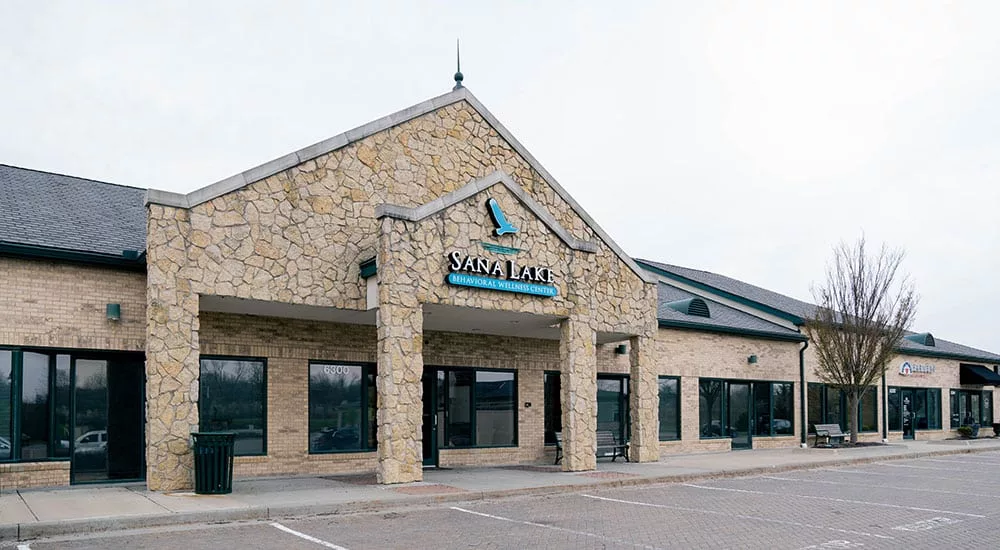Holistic Detox Center & Addiction Treatment
Holistic addiction treatment is a form of healing that considers the person as a whole. When we say “whole,” we mean the body, mind, spirit, and emotions. True wellness and optimal well-being start from within. According to clinical philosophy, the central focus of holistic treatment is gaining balance in the body, mind, and spirit.
For people struggling with drug and alcohol addiction, holistic treatment programs help to recognize and address these three aspects to get to the root of the problem, and any underlying conditions. Another belief of the holistic medicine philosophy is that, if one part is out of balance, the rest will be affected as well.
Treating addictive disorders is far more than just tackling the addiction itself. Human beings are complex creatures. Drug and alcohol dependency often stems from underlying mental and emotional roots. Thus, holistic drug rehab programs take all of that into consideration. If you’re a person with addiction, we encourage you to view the healing process as a positive journey.
At Sana Lake, our holistic recovery center in Missouri can help you or a loved one break the cycle of addiction. We utilize evidence-based alternative treatment methods that focus on treating getting to the root of the problem and examining any underlying contributing factors to achieve optimal diagnosis and treatment results.

Challenges present us with an opportunity to grow into better and more empathetic people. Regardless of where you’re at, there’s potential for you to improve and find fulfillment on your journey to recovery. Holistic therapies aim to help you find fulfillment and conquer drug and alcohol addiction.
At Sana Lake Recovery Center in Dittmer, Missouri, our addiction treatment centers, provide holistic treatment and other behavioral health services for people struggling with substance use disorders (SUDs), and mental health issues.

What is the Holistic Approach?
To reiterate, the holistic treatment approach is a natural form of healing that focuses on the body, mind, and spirit. Many different treatment options are used in holistic rehab. From yoga to journaling, music therapy, and art therapy, these alternative methods promote self-healing.
We understand that, for some people, hearing about holistic medicine for the first time may sound a little out of the ordinary. After all, we’ve adapted a culture that tends to throw prescriptions at issues and promotes “quick-fix” solutions.
It is certainly crucial not to overlook western medicine and appreciate evidence-based methods such as traditional therapy and medical care. However, we must also acknowledge that as complex humans, we require a more in-depth approach to substance abuse treatment.
At Sana Lake, our team believes in providing a full continuum of care. We’ve discovered that integrative health is the key to optimal recovery. It has been proven that the combination of addiction medicine, therapy, and mindfulness practices, has been effective in treating co-occurring disorders.
The Holistic Recovery Approach: 4 Categories
Holistic treatments are generally categorized into four categories when it comes to addiction treatment. For individuals with drug abuse. They are as follows:
This is a form of medicine that is outside of the Western biomedical approach. For example, herbal medicine can be used to supplement a substance abuse treatment program. Herbal medicine focuses on plants that have medicinal benefits, such as the chamomile flower for relaxation and reducing anxiety. Aromatherapy has also become a trend in which essential oils are used to promote physical and emotional well-being.
This consists of behavioral, psychological, social, and spiritual approaches. More specifically, it uses practices such as yoga and tai-chi. There are many proven benefits to incorporating yoga into your routine. As stated in the US National Library of Medicine National Institutes of Health, a study of 131 people showed that 10 weeks of yoga helped reduce stress and anxiety. It also aided in increased quality of life and mental health.
These methods focus on the touch or movement of the physical body. For example, massage therapy is a proven method that has been used to increase relaxation, as well. Our levels of stress can affect much more than just our mental health. There’s a physical toll on our bodies as well. Thus, incorporating relaxation-based methods is key to a full recovery in a holistic addiction treatment program.
Energy therapies are centered around the belief that energy and touch can be used to promote healing. This includes practices including electromagnetic, ultrasonic, thermal, or subtle energy. Reiki is a popular approach to energy-based therapies.
Holistic Treatment Options for Addiction
Our licensed professionals can help you navigate the different therapies and levels of care that a holistic treatment program encompasses. We encourage you to reach out with any questions or concerns you may have about addiction treatment, so we can guide you along the recovery journey.
Regardless of your beliefs, there is a part of holistic medicine you can benefit from. Even something as simple as journaling or taking five minutes to meditate in the morning can have enormous benefits. The beauty of holistic therapies is that they put a major emphasis on self-care. There is no “wrong” way to go about it.
Everyone has to start somewhere, and you get to choose that starting point. If meditation is something that you feel no inclination in trying, feel free to start with yoga (or vice versa). There are plenty of alternative medicine treatment options available.
Yoga
Yoga is a popular method in holistic addiction treatment for individuals suffering from drug dependency. Yoga is a form of exercise that consists mainly of postures, often connected by flowing sequences called vinyasas (smooth transitions). These postures are oftentimes accompanied by rhythmic breathing and often conclude with relaxation or meditation.
Respondents stated that yoga benefits their health by:
- Encouraging them to exercise more
- Motivating them to have a more nutritional and healthy diet
- Improving their quality of sleep
- Decreasing stress
- Motivating them to reduce alcohol use and smoking
Mindfulness
Introduced by the Buddha as a path to spiritual enlightenment more than 2,500 years ago, mindfulness has grown into a common practice in our world today. Mindfulness can be described as the art of being present in our own lives. It’s a gentle way of opening our minds to greater awareness, to a truer and more in-depth understanding of ourselves and our world.
Studies have depicted that mindfulness activities can “rewire” the brain in positive ways, enhancing both physical and mental health. Besides, mindfulness can also alleviate anxiousness and help people to cope with difficult emotions. It is a powerful tool in holistic rehab.
You’ll want to sit up tall with a straight back. Shut your eyes, and begin to focus on your breath. Take long inhales and long exhales. Take notice of the way that the breath sounds and feels. This simple awareness can help bring you down to your roots.
Remember, start small! Don’t feel pressured to sit for an extended period. You can begin by meditating for two minutes and gradually increase how long you sit each day. This is a practice made for you, so you get to decide how meditation helps you.
“Meditation practice isn’t about trying to throw ourselves away and become something better. It’s about befriending who we are already.” – Pema Chödrön
Journaling
Journaling, as a form of holistic addiction treatment, is a wonderful supplement in the recovery journey. There are many advantages to taking the time to journal and write down your thoughts. One may prefer to simply jot down what they’re thinking and vent on a piece of paper. Others may appreciate the use of writing prompts and taking the time to answer meaningful questions.
As stated by the University of Rochester Medical Center, writing in a journal provides “an opportunity for positive self-talk and identifying negative thoughts and behaviors.” Here are a few of our favorite writing prompts that can help to promote positive healing during the recovery journey:
- What are you most grateful for today, and why?
- What’s one major lesson you’ve learned in recovery so far, and how do you plan to apply it after treatment?
- What are you most proud of about yourself?
- How can you offer kindness and healing to those around you today?
- What excites you about tomorrow?
There are many other writing prompts online, as well. One of the best parts about journaling is that the ideas and inspiration are never-ending! There’s no shortage of topics to write about and questions to ask yourself.
Nutritional Therapy
Nutritional therapy is the application of the latest theories and research in nutrition and health sciences for the management of chronic disease, as well as the promotion of optimal health. Nutritional-based therapies tend to focus on improving various systems throughout the body, thus improving overall mental well-being as well.
As mentioned above, the body and mind must work together for proper balance. The general recommendations for this type of holistic treatment include:
- Avoid anti-nutrients, such as processed foods.
- Stick to whole foods: unprocessed, raw vegetables and fruits, beans, legumes, raw nuts, raw seeds, whole grains, free-range, grass-fed organic animal products, and small wild fish.
- Eat a variety of whole foods, without as much attention to calories, carbohydrates, and fats.

At Sana Lake Recovery Center, we pride ourselves on our well-rounded approach to not just addiction, but co-occurring mental health disorders as well. We will care for you from the moment you step into treatment to the moment we set you off. Our community is founded on support and encouragement.
There’re many unique benefits to treatment at our recovery center. Our members will receive core parts of treatment, including, but not limited to:
- EMDR-trained therapists, specifically the DURT (desensitization of triggers and urge reprocessing)
- Naturopathic remedies include yoga, nutritional replenishment, acupuncture, aromatherapy, acupressure
- Nutritional and health menus created by a licensed nutritionist
- Access to a spiritual mentor/guide who specializes in helping members explore their spirituality
- Relationship with Washington University’s Brown’s School of Social Work, for interns, and outcomes – We measure our treatment outcomes to continually improve upon our clinical programming.
- Medical Director with a certification in addiction medicine
Seek Help Today At Our Holistic Recovery Center
We believe that recovery is possible for each individual. With the right personalized treatment plan, you’ll notice your life improving for the better. However, you must take that first step in deciding to seek help and remain free from addiction.
For people seeking addiction treatment, our specialists can help you navigate all the ins and outs of recovery. Contact our holistic recovery center today, and begin your journey to healing, long-term health, and sobriety.



